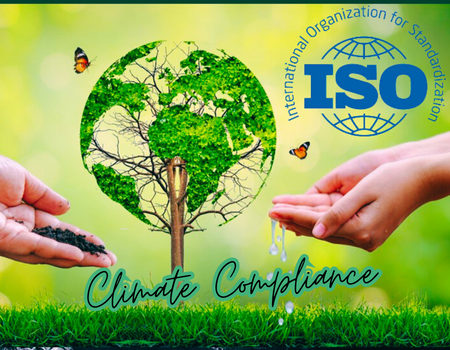Climate Compliance: Navigating ISO's Latest Mandates for Your Management System
Speaker: William A. Levinson
Speaker Designation: Principal Consultant, Levinson Productivity Systems

Speaker: William A. Levinson
Speaker Designation: Principal Consultant, Levinson Productivity Systems

In February 2024, ISO introduced an amendment addressing climate action changes, impacting not only ISO 9001 but also other prominent standards like ISO 27001 and ISO 14001.
To adhere to ISO's climate action commitments, 31 existing management systems standards underwent amendments to include considerations for climate change. Noteworthy standards affected include ISO 9001, ISO 14001, ISO 22000, ISO 22301, ISO 27001, ISO 45001, and ISO 50001. Clause 4.1, pertaining to the organization's context, will mandate an evaluation of whether climate change is pertinent to the organization's management system. Clause 4.2, concerning relevant interested parties and their needs, emphasizes that these stakeholders may have requirements regarding climate change.
The question arises: What correlation exists between climate change and seemingly unrelated standards such as information security management and quality management?
Though one may be inclined to dismiss the former requirement as irrelevant, climate-related weather events can pose significant risks to supply chains and, consequently, disrupt operational continuity.
Discover why the new requirements, influenced by the London Declaration and UN climate goals, are significant yet do not mandate carbon neutrality.
The presenter advises against costly actions aimed at achieving carbon neutrality and will elaborate on two key reasons: (1) the inevitability of climate change as a natural phenomenon beyond human control, and (2) the contradiction between urgency claims and extravagant behaviors of certain climate advocates.
Gain insights into the profit-driven motives of carbon credit sellers and the potential cost-effectiveness of sponsoring trees through the US Forest Service compared to direct air capture (DAC) plants. Understand that while climate change is undeniably important due to its tangible impact on supply chains, organizations with existing risk mitigation processes may already meet the requirements. Furthermore, learn how efforts to reduce energy waste not only mitigate carbon emissions but also lead to lower prices, higher wages, and increased profits concurrently.
William A. Levinson, P.E., is the principal of Levinson Productivity Systems, P.C. He is an ASQ Fellow, Certified Quality Engineer, Quality Auditor, Quality Manager, Reliability Engineer, and Six Sigma Black Belt. He is also the author of several books on quality, productivity, and management, of which the most recent is The Expanded and Annotated My Life and Work: Henry Ford's Universal Code for World-Class Success.